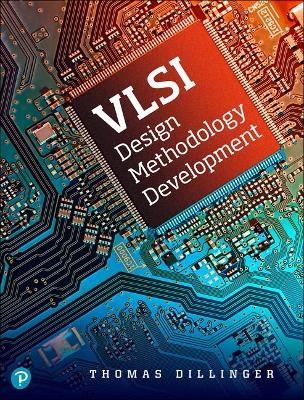
VLSI Design Methodology Development
Pearson (Verlag)
978-0-13-573241-0 (ISBN)
As microelectronics engineers design complex chips using existing circuit libraries, they must ensure correct logical, physical, and electrical properties, and prepare for reliable foundry fabrication. VLSI Design Methodology Development focuses on the design and analysis steps needed to perform these tasks and successfully complete a modern chip design.
Microprocessor design authority Tom Dillinger carefully introduces core concepts, and then guides engineers through modeling, functional design validation, design implementation, electrical analysis, and release to manufacturing. Writing from the engineer’s perspective, he covers underlying EDA tool algorithms, flows, criteria for assessing project status, and key tradeoffs and interdependencies. This fresh and accessible tutorial will be valuable to all VLSI system designers, senior undergraduate or graduate students of microelectronics design, and companies offering internal courses for engineers at all levels.
Reflect complexity, cost, resources, and schedules in planning a chip design project
Perform hierarchical design decomposition, floorplanning, and physical integration, addressing DFT, DFM, and DFY requirements
Model functionality and behavior, validate designs, and verify formal equivalency
Apply EDA tools for logic synthesis, placement, and routing
Analyze timing, noise, power, and electrical issues
Prepare for manufacturing release and bring-up, from mastering ECOs to qualification
This guide is for all VLSI system designers, senior undergraduate or graduate students of microelectronics design, and companies offering internal courses for engineers at all levels. It is applicable to engineering teams undertaking new projects and migrating existing designs to new technologies.
Thomas Dillin ger has more than 30 years of experience in the microelectronics industry, including semiconductor circuit design, fabrication process research, and EDA tool development. He has been responsible for the design methodology development for ASIC, SoC, and complex microprocessor chips for IBM, Sun Microsystems/Oracle, and AMD. He is the author of the book VLSI Engineering and has written for SemiWiki.
Chapter 1 Introduction
Chapter 2 VLSI Design Methodology
Chapter 3 Hierarchical Design Decomposition
Chapter 4 Cell and IP Modeling
Chapter 5 Characteristics of Functional Validation
Chapter 6 Characteristics of Formal Equivalency Verification
Chapter 7 Logic Synthesis
Chapter 8 Placement
Chapter 9 Routing
Chapter 10 Layout Parasitic Extraction and Electrical Modeling
Chapter 11 Timing Analysis
Chapter 12 Noise Analysis
Chapter 13 Power Analysis
Chapter 14 Power Rail Voltage Drop Analysis
Chapter 15 Electromigration (EM) Reliability Analysis
Chapter 16 Miscellaneous Electrical Analysis Requirements
Chapter 17 ECOs
Chapter 18 Physical Design Verification
Chapter 19 Design for Testability Analysis
Chapter 20 Preparation for Tapeout
Chapter 21 Post-Silicon Debug and Characterization (“Bring-up”) and Product Qualification
| Erscheinungsdatum | 08.07.2019 |
|---|---|
| Sprache | englisch |
| Maße | 232 x 34 mm |
| Gewicht | 1180 g |
| Themenwelt | Technik ► Elektrotechnik / Energietechnik |
| ISBN-10 | 0-13-573241-7 / 0135732417 |
| ISBN-13 | 978-0-13-573241-0 / 9780135732410 |
| Zustand | Neuware |
| Haben Sie eine Frage zum Produkt? |
aus dem Bereich


